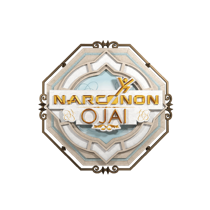Teen Drug Use Hampers Development of Vital Life Skills
Today, drugs invade the homes of American children at earlier ages than ever before. It might not surprise people to think of teens starting to use drugs, but how about pre-teens? According to the Substance Abuse and Mental Health Services Administration, by age 12 or 13, some young people are using substances like tobacco, alcohol, inhalants, marijuana, and prescription drugs such as sleeping pills and anti-anxiety medicines.
Parents will detect some of this substance use and handle through whatever means they have available. But unfortunately, some youth will continue to use these and other substances when they can get their hands on them. This drug use can grow into addiction at any point – addiction doesn’t just strike adults.
If a teen uses drugs throughout these years of maturation and development, he normally misses many of the life lessons he would otherwise learn. He will usually lack a sense of responsibility and consequence. Both girls and boys both can lack appropriate sexual morals and an understanding of healthy relationships. By the time they reach adulthood, drugs have been covering up their normal responses to life events for years.

Maturity and good judgment, knowing how to make rational decisions, patiently developing a plan to achieve a far-off goal, being able to successfully deal with relationship difficulties—all these skills are missed when a person relies on drugs to cope.
Factually, a person in rehab will have to develop life skills like these to enable them to stay on a sober path in the future. That’s why life skills training is an essential part of rehab.
Manuals for Life Skills Training
A considerable portion of the Narconon drug rehabilitation program addresses this shortage of life skills. Building up these skills is a universal need among the formerly addicted—those who were adults at the time they started their heavy substance abuse lose the same skills in the years they spend chasing and using drugs.
In the later part of the Narconon program after a person has been able to detoxify from old, stored drug residues and has had a chance to live in the present and let go of the past, life skills receive attention. Three manuals teach the most vital sober skills a person needs when he goes home:
Overcoming Ups and Downs in Life Course: This provides an understanding of why a person may be up one day and down the next. There’s an exact reason, and it can be eliminated from the recovering person’s life, helping him to plot a straight and sober path in the future.
Personal Values: In recovery, maintaining one’s integrity has so much to do with also maintaining sobriety. But what are the cues that let you know that integrity is slipping? How can you recover it? This course teaches those skills.
Changing Conditions in Life Course: Life is not always fun or pleasant. But knowing how to improve situations and resolve problems goes a long way toward preventing a person from wanting to hide out in drugs again.
Each course has its manual. Using it, each individual in recovery can learn the skills and then puts them to use improving his own life before graduation.
Learn about the rest of the Narconon drug rehab program by calling Narconon Ojai today at 1-877-935-7435. You’ll find out why this has been the choice for tens of thousands of people needing recovery from addiction since its founding in 1966. Call us today.
https://www.drugabuse.gov/publications/preventing-drug-abuse-among-children-adolescents-in-brief/chapter-1-risk-factors-protective-factors/when-how-does-drug-abuse-start-progress


